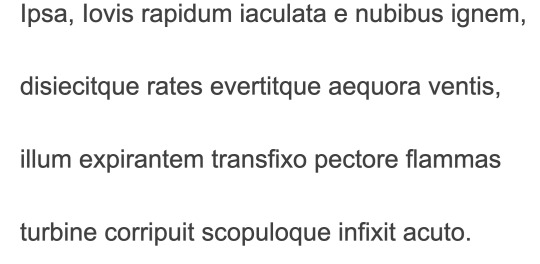#aeneid daily
Text
fun little thing i enjoy doing is just imagining that odysseus and aeneas are constantly, increasingly, sopping wet the entire time of their Journeys even when they’re not. even when they’re on dry land they are Covered In Water and Dripping Everywhere they Cannot Escape The Sea
#laughs awkwardly#aeneid daily#not to little meow meow the classics or anything but come on they check all the boxes. war crimes and everything#really enjoy that for odysseus it makes sense because the Ocean Itself is Mad At Him#but for aeneas he's just tossed around the sea like a lone sock in the washer because Someone Put Him In There#aeneas is like a dog who keeps trying to escape the bathtub but juno keeps shoving him back in
634 notes
·
View notes
Text

[image description: the following lines from the a.s. kline translation of Aeneid 10:
Aeneas spoke to faithful Achates:
"Supply me with spears, those that lodged in the bodies
of Greeks on Ilium's plain: my right hand won't hurl
any at these Rutulians in vain."
/end description]
the way it is literally the same set of weapons used in the trojan war. it is the same weaponry it is the same war history is a washing machine cycle of the same blood being spilled over and over
263 notes
·
View notes
Text

every sentence out of Aeneas' mouth this entry is digging the hole deeper
377 notes
·
View notes
Text


aeneid 1.421-9 trans. a.s. kline / thomas biggs, poetics of the first punic war
#aeneid daily#still on yesterday’s whoops#when the hashtag architecture of anachronism hits#eventual blorbopolis tag#aeneid#beeps
393 notes
·
View notes
Text
the way the Aeneid is juxtaposing Misenus's funeral rites with Aeneas's imminent journey to the Underworld... he's dead he's been dead from the start... what is the difference between preparing a corpse and preparing a hero !!
109 notes
·
View notes
Text
Aeneas is such a facinating protagonist. The Gods toss him around as a ragdoll. Either because they hate him, like Juno, or because they love him, like his mother. He is a slave to his own destiny, and has no agency.
And yet. He destroys everything he touches.
He is the story of loss. He is the founder of Italy. Is his a life a tragedy as a commentary on going on in immeasurale hardship? Or is his life a tragedy because he was a ghost this whole time?
128 notes
·
View notes
Text

I will always remember this bit of the Aeneid, because my high school Latin teacher said she always envisioned Athena slamming Ajax on the rock like a piece of paper on a receipt spike -- she said it with such unrestrained glee -- and I knew she was envisioning it in her mind even then.

99 notes
·
View notes
Text
everyone complaining that aeneas has it too hard he's suffering too much like it wasn't literally baked in. does what it says on the tin guys
#aineias -> ainon -> terrible#cmon now guys#aeneid daily#will nobody think of aphrodite's ainon akhos!!
71 notes
·
View notes
Link
and we begin with a bang: intertextuality, godly wrath, and aeneas praying to the gods to just please let him die already!
there’s a chance i got overzealous with the explanatory notes. i promise they will calm down as we move forward
#text#book 1#aeneid daily#<-- if anyone wants to put discussion posts in that tag perhaps? i hope we are all prepared to Discuss.
91 notes
·
View notes
Text
Aeneas and Creusa
As much as there is discourse on Aeneas’ part in Creusa’s disappearance, it is made clear that Creusa was indeed important to Aeneas (this is what I will personally fight Perkell on, even when I find her other opinions on the topic to be fascinating). Not only is there the mad dash to the burning city (“I’m determined to incur every risk again, and retrace all Troy and once more expose my life to danger”) and the admittance of this being “the cruellest sight” in all of the destruction of the city (her absence), but also some little details like word choices and intertextual references. So let’s talk about my favourite Aeneid couple for a moment.
(Here I use Austin’s commentary as my main source.)
I spoke a little of Aeneas and Creusa’s parallels to Orpheus and Eurydice in my first post – Creusa’s name being ‘Eurydica’ in some versions is the most obvious clue, but Creusa’s loss mirrors the way Orpheus loses Eurydice. The commentary of today’s email had a good interpretation of this parallel: they’re a bit of a reverse Orpheus and Eurydice, Aeneas loses Creusa because he doesn’t look back. But a direct parallel can also be drawn – technically Aeneas does not lose Creusa until he looks behind. There are also textual references to Vergil’s Georgics, like how Orpheus and Creusa both call their spouses “dulcis coniunx” (Aen. 2.777 and Georg. 4.465), and like i.e., Austin’s commentary points out, this is certainly no accident.
But let’s talk about those vocabulary choices now!
I also find the repetition (of Creusa’s name and the iterumque iterumque vocavi I mentioned in the last post) in the passage where Aeneas searches for her interesting. This reminds me of the last passage of Orpheus and Eurydice part in Georgics: Eurydicen toto referebant flumine ripae (‘Eurydice’ echoed the banks all along the river; 4.527), the theme of calling out for the lost wife’s name, all in vain. I don’t really have too much to say about this parallel in particular more than this (I haven’t perused Georgics closely enough to dare a further interpretation/comparison, but if someone else has please let me know your thoughts). Truly this interpretation of them, as repeating the tragedy of Orpheus and Eurydice, makes these two all the more dear to me.
Every once in a while, Vergil does this interesting register change from the language of the epic to Roman comedy. This happens a couple times in scenes featuring Creusa. In 2.739, erravitne via seu lassa resedit (did she stray from the path or sit down in exhaustion), Austin directs the focus to lassus, tired. Outside of comedy, it is rarer than fessus (though it has been used by other authors like Horace, Ennius, Lucretius, Cato and Catullus). Another example of uses of Roman comedy’s vocabulary is in Creusa’s line to Aeneas in 2.786: aut Grais servitum matribus ibo (nor will I end up as the slave of Greek matrons). Here Vergil uses a supine, servitum, that is more common in colloquial and early Latin, being especially common with Plautus. Austin’s interpretation is that this register switch, from epic Latin to a more colloquial level, makes Aeneas and Creusa seem more relatable to the audience. The conversation, with its grounded vocabulary, communicates to the Latin-speaking audience a sense of familiarity: this couple is just like us, and they talk like married couples do. The casual language communicates affection.
Creusa’s speech is overall really sweet, with her calls of “sweet husband” and trying to console him in his immense grief and finally the request to protect the love for their child. My favourite line here is lacrimas dilectae pelle Creusae (banish your tears for your beloved Creusa; Verg. Aen. 2.784) and Austin has something to say about the adjective dilectus. This is also a bit of a rare word in the Aeneid, it appears three times in total: Sychaeus is dilectus (1.344) as he is loved by Dido, and Atys is called dilectus (5.468) in relation to Iulus (poeroque puer dilectus Iulo, boyish love of the boy Iulus…whatever that means in this context), and of course here in Creusa’s speech. Dilectus is used to emphasize an especially warm and deep relationship between the characters.
One could, and will, make the observation that in Aeneas’ telling, Creusa calls herself dilecta, that she is the one who calls Aeneas dulcis coniunx – but here I think it is useful to remember that Aeneas is also the one narrating this. He may be putting words in his wife’s mouth, but he is the one choosing to speak of their marriage in these terms. Her loss is devastating (I bring up vidi crudelius again) and Aeneas never utters her name again in the rest of the epic (though Andromache mentions her, and Ascanius namedrops her in Book IX). I think that Creusa’s loss haunts the relationships he has with women in the future – he can never give himself or his love fully, as it was lost like a light breeze, a winged dream.
(Btw, Sarah Ruden translates ‘lacrimas dilectae pelle Creusae’ as ‘so weep no longer, though you love me’. Devastating. Sobbing inconsolably. Never the same again.)
Tomorrow, I’ll talk about divine Creusa and also why you should be a little unwell about her too.
#creusa#aeneid daily#the aeneid#wildkitte#a bit shorter this time#but i really am so fucking unwell about this relationship#my prof actually was the one who pointed out that aeneas never seems to really get over creusa's death does he#and that's how i choose to read the rest of the epic
31 notes
·
View notes
Text


are you telling me the first aeneas line is exactly the same phrasing as the turnus death line. are you fucking with me right now. publius i’m going to kill you
381 notes
·
View notes
Text
The Trojan war began with the daughter of a king being sacrificed at the altar by a father, and it ends with a king being slaughtered at the altar by a son
165 notes
·
View notes
Text


i am NOT thinking about urbs antiqua fuit (top ten aeneid lines that make me self combust) but isn’t it cool how karthago and italia are geographically (and will be politically) Against one another. and yet the first time carthage is named in the poem (as the urbs antiqua! you thought that was going to be troy or rome lol) it literally elides into italy. karthagitaliam. augh
213 notes
·
View notes
Text

whoever is writing the commentary for Aeneid Daily, i owe you my life
#described in alt#aeneid daily#now i have to scrape my brain and the dictionary to remember WHY this word is important#im sure i have a buried memory somewhere of Dr L saying “now this becomes problematic--!”#(this was one of his favorite phrases and i should note he did not mean problematic in the modern Internet way)
42 notes
·
View notes
Text
The Aenead so far is a lot less of a shit show that the iliad. Tho only read book 1. Some notable things tho:
- Venus sprinkled her son is sexy dust
- Juno went to the winds like, yo I'll give u brood mare wife if u start a storm to kill those Trojans over there, winds went, bet.
- iulus seems to be between a year old and 13, we do not know, he says his first word after he has done archery and ridden a horse.
- oh and love is an infection.
#aeneas#virgil#roman mythology#Augustus#virgil's aeneid#aeneid daily#book 1 summary#homeric iliad#was more fun#iliad meme#i do classical civ#classical civilisation
29 notes
·
View notes
Text
juno watching aeneas from the heavens: i want that twink blown off course
34 notes
·
View notes